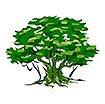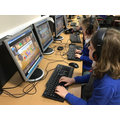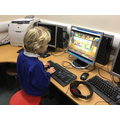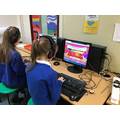Computing
Curriculum Intent:
A high-quality computing education equips pupils to use computational thinking and creativity to understand and change the world. Computing has deep links with mathematics, science, and design and technology, and provides insights into both natural and artificial systems. The core of computing is computer science, in which pupils are taught the principles of information and computation, how digital systems work, and how to put this knowledge to use through programming. Building on this knowledge and understanding, pupils are equipped to use information technology to create programs, systems and a range of content. Computing also ensures that pupils become digitally literate – able to use, and express themselves and develop their ideas through, information and communication technology – at a level suitable for the future workplace and as active participants in a digital world.
Aims
The national curriculum for computing aims to ensure that all pupils:
can understand and apply the fundamental principles and concepts of computer science, including abstraction, logic, algorithms and data representation
can analyse problems in computational terms, and have repeated practical experience of writing computer programs in order to solve such problems
can evaluate and apply information technology, including new or unfamiliar technologies, analytically to solve problems
are responsible, competent, confident and creative users of information and communication technology.
Curriculum Implementation:
Key stage 1
Pupils are taught to:
- understand what algorithms are; how they are implemented as programs on digital devices; and that programs execute by following precise and unambiguous instructions
- create and debug simple programs
- use logical reasoning to predict the behaviour of simple programs
- use technology purposefully to create, organise, store, manipulate and retrieve digital content recognise common uses of information technology beyond school
- use technology safely and respectfully, keeping personal information private; identify where to go for help and support when they have concerns about content or contact on the internet or other online technologies.
Key stage 2
Pupils are taught to:
- design, write and debug programs that accomplish specific goals, including controlling or simulating physical systems; solve problems by decomposing them into smaller parts
- use sequence, selection, and repetition in programs; work with variables and various forms of input and output
- use logical reasoning to explain how some simple algorithms work and to detect and correct errors in algorithms and programs
- understand computer networks including the internet; how they can provide multiple services, such as the world wide web; and the opportunities they offer for communication and collaboration
- use search technologies effectively, appreciate how results are selected and ranked, and be discerning in evaluating digital content
- select, use and combine a variety of software (including internet services) on a range of digital devices to design and create a range of programs, systems and content that accomplish given goals, including collecting, analysing, evaluating and presenting data and information
- use technology safely, respectfully and responsibly; recognise acceptable/unacceptable behaviour; identify a range of ways to report concerns about content and contact.
At Reydon Primary School
Pupils are taught using a range of well known software including Word, PowerPoint and Excel as well as a range of online resources such as Espresso and Scratch. This software enables children to be taught effective computing skills for life in word process and formula writing alongside more specific skills in coding and programming. Each child has access to the internet and is taught how to use it appropriately and safely alongside how search engines and websites operate. Every child also has access to online safety resources from Gooseberry Planet with an individual login. Internet safety is taught regularly at an age appropriate level and forms the basis of all Computing learning. Children are also taught about vocabulary linked to computing and key skills for life including touch typing. Computing is also cross-curricular, progressing children's learning in all areas of the curriculum.
Computing Learning Journey
computing subject leader learning journey january 2023.pdf
Computing Skills and Knowledge:
computing subject leader learning journey skills knowledge.pdf
Computing Vocabulary
reydon primary school computing vocabulary.pdf
Curriculum Impact:
By the end of each key stage, pupils are expected to know, apply and understand the matters, skills and processes specified in the relevant programme of study. At Reydon we use summative assessment (based on the objectives in the 2014 National Curriculum) to determine children’s understanding and inform teachers planning. Each part of the Computing curriculum is reviewed on a termly basis by the subject leader.





